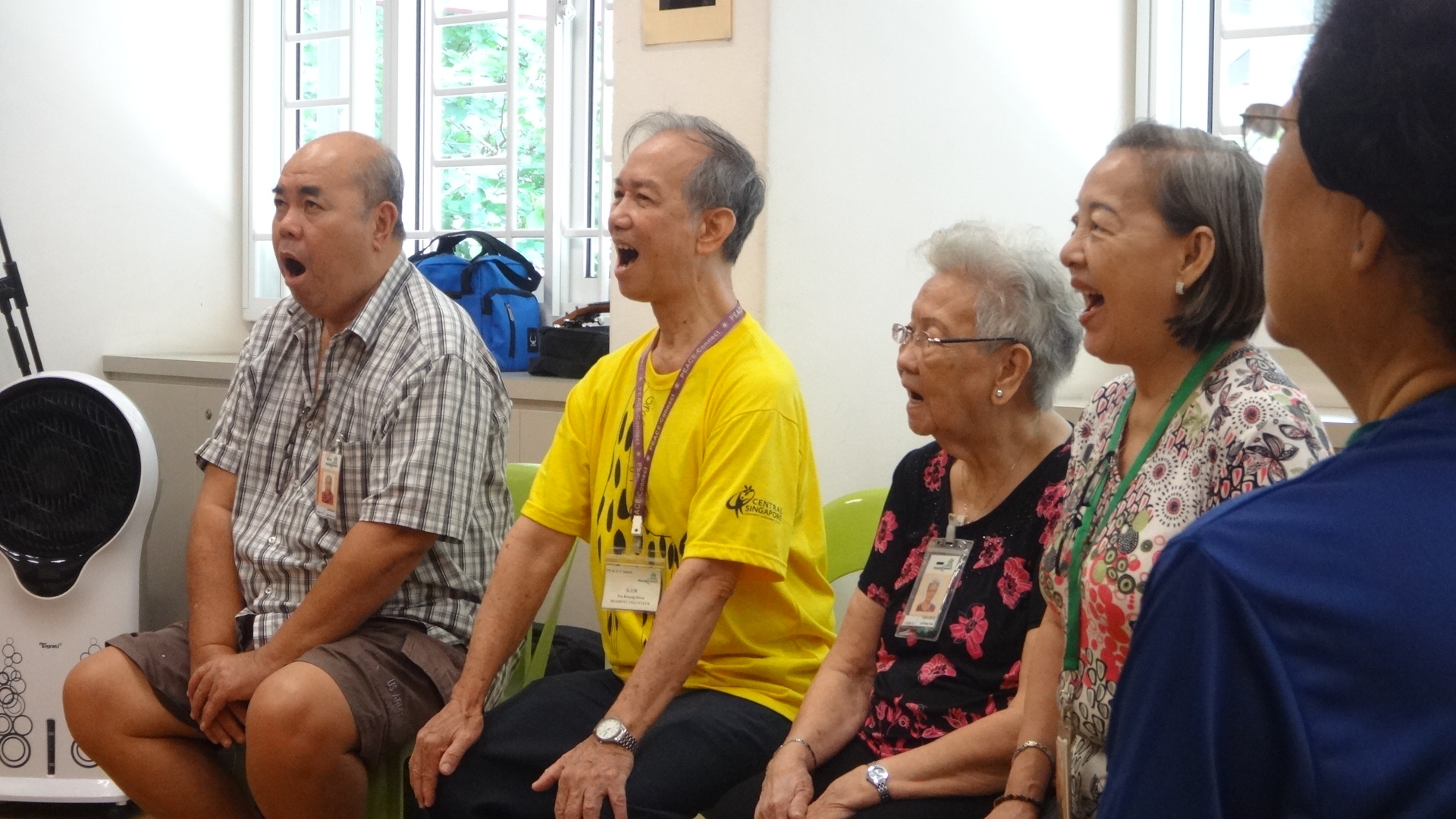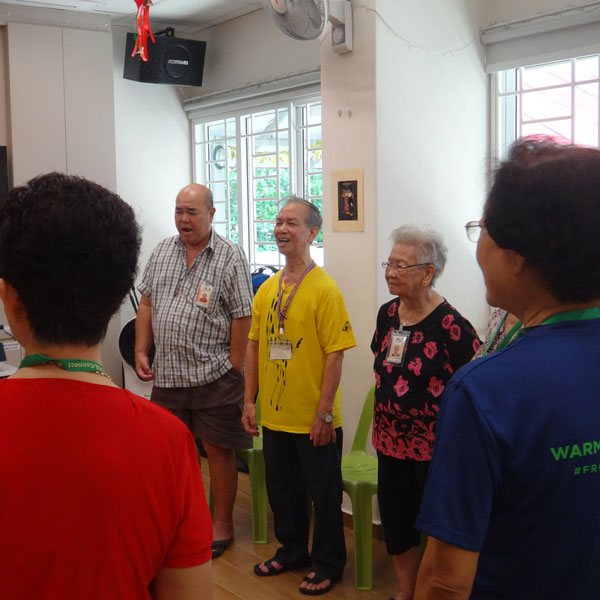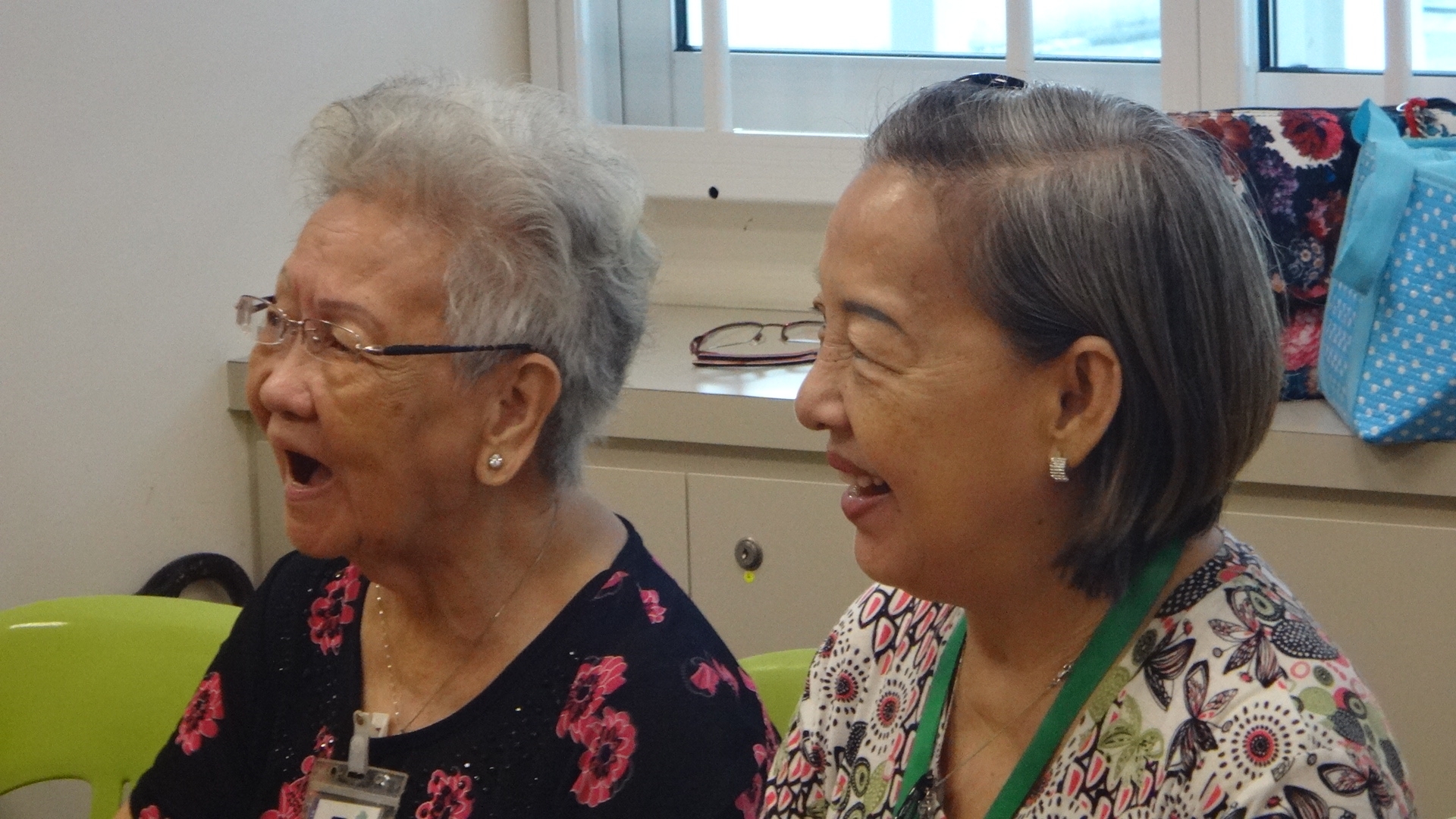Music and Memories
14 July 2017
We all have favourite songs that conjure up happy memories with just a few familiar bars and bring a smile to our face. Such is the power of music. That power is now being used to help patients with, or at risk for dementia, grab hold of memories before they slip out of their reach.
“Music and health go hand in hand”
says professor Kua Ee Heok, the Tan Geok Yin Professor of Psychiatry and Neuroscience at National University of Singapore (NUS) and head of the Dementia Prevention Program (DPP). “Music helps to unravel the mystery of the mind,” he says.
Professor Kua was inspired to explore music reminiscence and mental health 16 years ago when the wife of a retired surgeon contacted him about her husband’s agitated behaviour, but when he when he went to visit him, the surgeon was calm and content while listening to Beethoven’s ‘Moonlight Sonata,’ which reminded him of a “most joyful time” in his life.
Groups of participants in the DPP, conducted by nurses and social workers, listened to Chinese songs of their youth, chosen by them, as they watched a slide-show of photos that they’d chosen from their lives. The exercise brought back happy memories and filled them with a sense of pride.
In one month they showed significant improvement in mood and anxiety. The group activity also launched friendships as it made the participants, many of whom lived alone without a social circle, eager to get to know their neighbours and want to meet outside of the program. Social interaction and music also worked together to help patients with early onset dementia in the “Sing Out Loud! Project”, organised by Esplanade – Theatres on the Bay in partnership with Alzheimer’s Disease Association (Singapore).
“The family feedback has also been very good. The project was a positive one.” Conducted by Angelina Choo, the program involved group singing, freestyle dance and movement using favourite songs.
Choo worked with patients from age 65 to 82 for 8 weeks and though brief, the program benefitted the patients immensely.
“My work was short but in the eight weeks I was with them, I saw frowns turn to smiles, I saw friendships blossom and I saw good memory for most exercises,” says Choo.
“The family feedback has also been very good. The project was a positive one.” Choo used short folk songs of 4 to 8 lines that were simple to pick up and for mandarin speakers she used an old Chinese childhood song.
“The exercises used in the class are music based but they serve a purpose. I use a full body approach to singing where we exercise the senses including hearing, coordination, thinking, speech and sound.”
“It is possible to conceive interventional programmes to prevent dementia and depression in late life.” says Professor Kua.
“Music is life and life is music.”
Do stay tuned with us for more updates on the Choir Project at Peace Connect!
In the meantime, stay Forever Young with the power of Music






